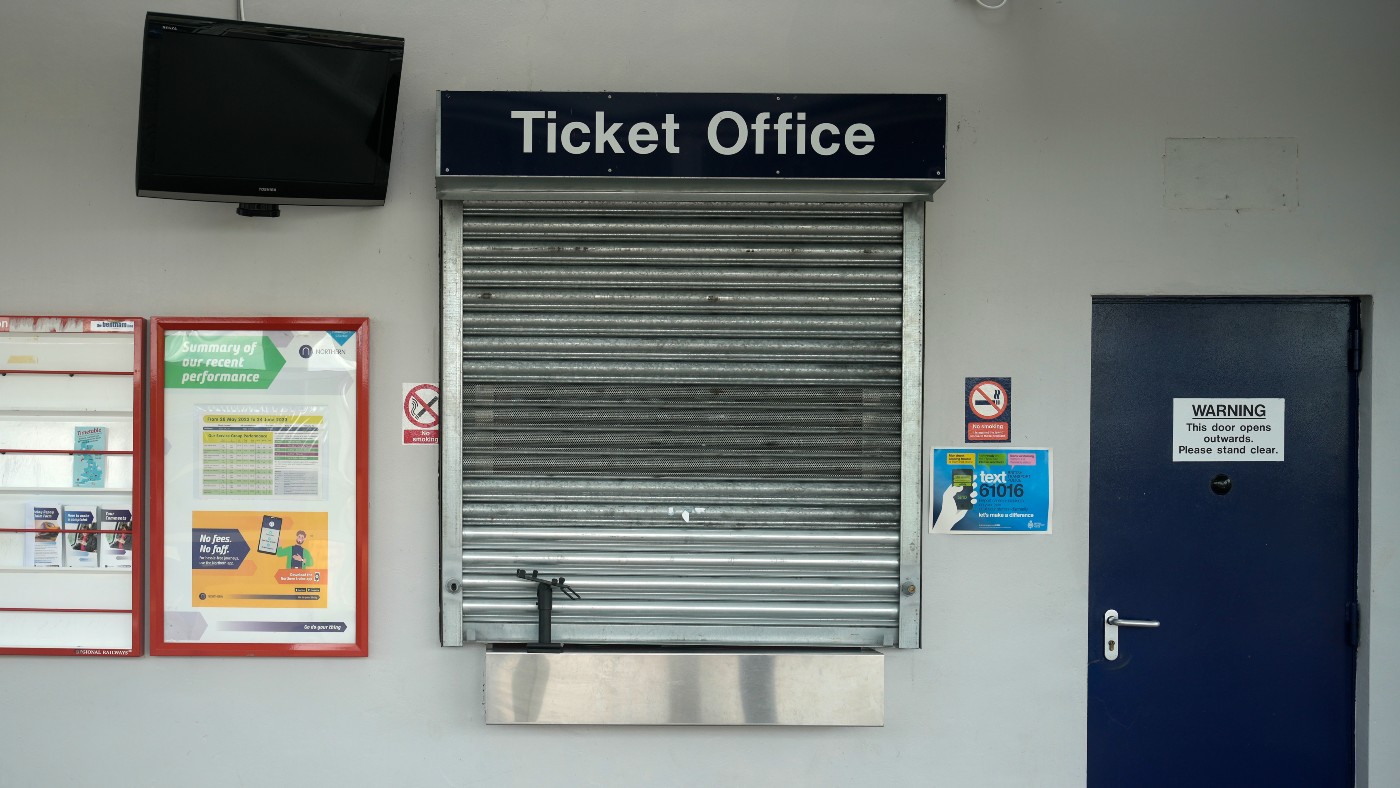Ticket offices: on track for closure?
Proposal to shut the vast majority of the 1,000-plus ticket offices across England has prompted uproar

A free daily email with the biggest news stories of the day – and the best features from TheWeek.com
You are now subscribed
Your newsletter sign-up was successful
A “huge and worrying change” is coming down the railway track, said The Sunday Times.
The Rail Delivery Group, which represents Britain’s train companies, is proposing to shut the vast majority of the 1,000-plus ticket offices across England; only the largest will be kept. The rationale for this “high-handed” plan is that only 12% of tickets are now bought face-to-face, compared with 82% 30 years ago.
‘Sense of security and oversight’
Ticket machines and the smartphone revolution are making ticket counters obsolete, and their staff can now be freed, or so rail bosses claim, to “transition to multiskilled ‘customer help’ roles”. What this ignores, though, is that for some travellers – the elderly, the disabled, those without a smartphone – ticket offices remain essential. Without them, many will be put off travelling by train, or will end up paying more than they need to.
The Week
Escape your echo chamber. Get the facts behind the news, plus analysis from multiple perspectives.

Sign up for The Week's Free Newsletters
From our morning news briefing to a weekly Good News Newsletter, get the best of The Week delivered directly to your inbox.
From our morning news briefing to a weekly Good News Newsletter, get the best of The Week delivered directly to your inbox.
You don’t have to be in a vulnerable group to loathe this plan, said Jemima Lewis in The Daily Telegraph. “A ticket office is more than just a place to buy tickets.” It’s a “manned post”, creating an immediate “sense of security and oversight” – and ensuring that a “paid professional, however surly”, will provide “the kind of individual service that no algorithm can supply”. If you want to object, be quick: a three-week consultation period ends on 26 July.
‘Glow of nostalgic glamour’
Now that they’re threatened with the axe, these “Dickensian cubbyholes” are being bathed in a “glow of nostalgic glamour”, said Libby Purves in The Times. But their loss needn’t be a disaster. Elderly people are often cited as vulnerable in these cases, but today’s octogenarians have had 20 years to get used to phones and screens. And those who do need assistance should still be able to get it, from the counter staff who’ve been redeployed to offer assistance on concourses and platforms.
Don’t count on that, said Simon Kelner in The i Paper. This so-called modernisation of the “ticketing experience” is a cynical cost-cutting measure, and the idea that staff will be kept on to provide “more face to face” support is pure corporate “sophistry”. Unions know it, and so do disabled and passenger groups, who have already made their objections clear. It’s pretty obvious that “in one sense at least, we are being taken for a ride”.
A free daily email with the biggest news stories of the day – and the best features from TheWeek.com